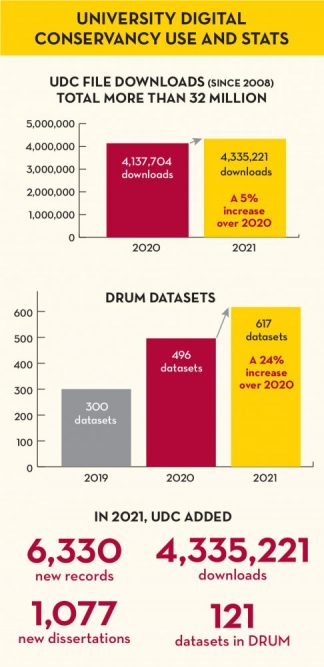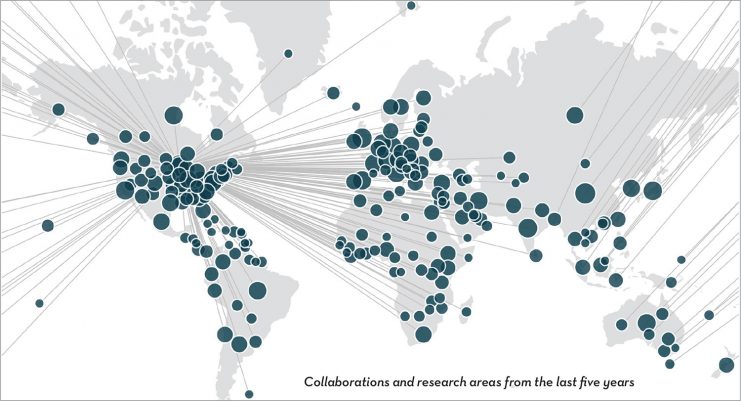Research
Data Curation Network grows
As researchers encounter increasing requirements to store their data in places and ways that make it available online to anyone, the Data Curation Network (DCN) — a U of M Libraries-led collaborative — has stepped up, growing from six institutions to 15 over the last four years and by curating more than 270 datasets.
“This is the direction that things are going — more transparency — and I embrace that,” says Jay Austin, professor in the Department of Physics and Astronomy at the University of Minnesota Duluth. Because of the DCN’s work, Austin, his research peers, and community members seeking to use his data, benefit.
In the last year, the DCN — funded by grants from the Sloan Found-ation and the Institute of Museum and Library Services — has moved toward sustainability through a membership approach to address shared costs.
The Data Repository for University of Minnesota (DRUM) is the place for U of M faculty, staff, and students to share, publish, and preserve their digital research data for long-term access and future use.
The University Digital Conservancy (UDC) holds more than 90,000 articles, University documents, dissertations, datasets, and more — and provides free, public access and long-term preservation to work created at the U of M.
In FY2021, our librarians were involved in 92 systematic review projects from 11 different colleges and schools. We compile and present the published outcomes of this work in Experts@Minnesota.
Publishing advances
In 2021, Libraries Publishing Services
- Launched a new catalog to showcase publications: publishing.lib.umn.edu. The catalog makes it easy to find the growing number of journals, mono-graphs, and textbooks published by the Libraries.
- Expanded its campus reach. As of January 2022, Libraries Publishing has now worked with authors and editors from 12 colleges and three institutes or research centers across the University of Minnesota Twin Cities campus, Extension, University of Minnesota–Duluth, and four scholarly societies.
- Produced three monographs and six textbooks, and launched two new journals.
Experts @ Minnesota
Experts@Minnesota displays research profiles for people at the U of M and feeds publication lists to U of M center and department websites. But it also saves the University money by providing ready-to-use data on University research outputs for reporting to funders. And it can demonstrate U of M collaborations among colleges or campuses or with researchers around the world.
Digital Arts Sciences + Humanities
The Digital Arts, Sciences, and Humanities (DASH) program supports faculty and students who employ digital technologies in their research, teaching, and engagement work.
Praise for DASH’s Software Carpentry Workshops
“The instructors were saints — so patient with a group that came from different disciplinary and knowledge bases. I really appreciated how open they were to questions and resolving issues that came up with different learners…. I’m a new advocate for the Carpentries and will encourage all of my students and peers to do these workshops ASAP in their careers.”
— Software Carpentry participant
Praise for the DASH RAs
“Thank you so much for your vision and labor and for the generosity, care, and attentiveness that you devoted to every little task associated with my website project. I am full of admiration and appreciation.”
— Richa Nagar, Professor, Department of Gender, Women, and Sexuality Studies




